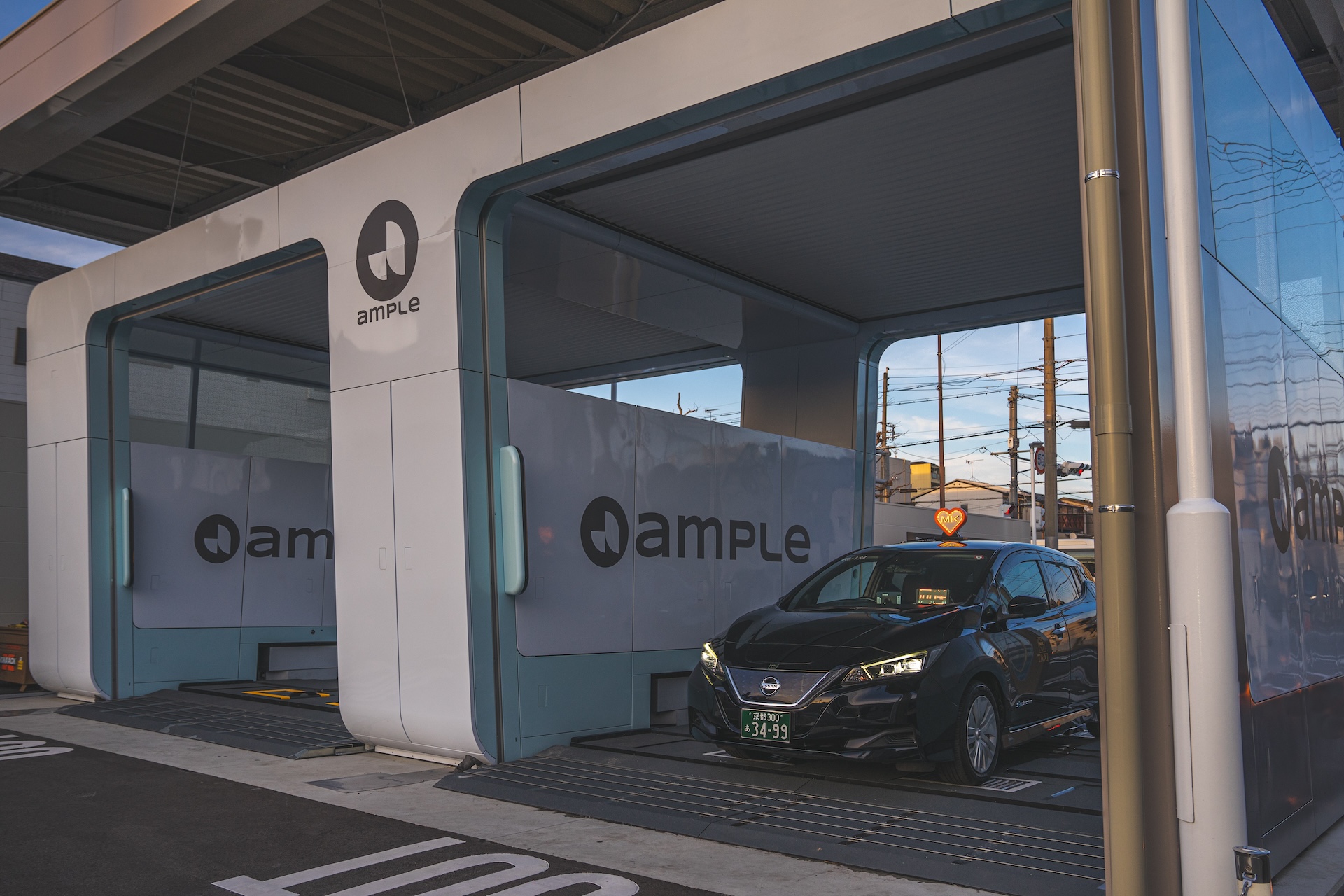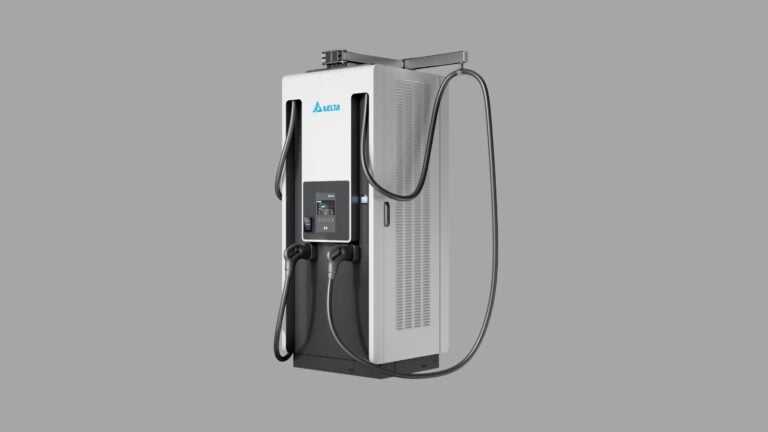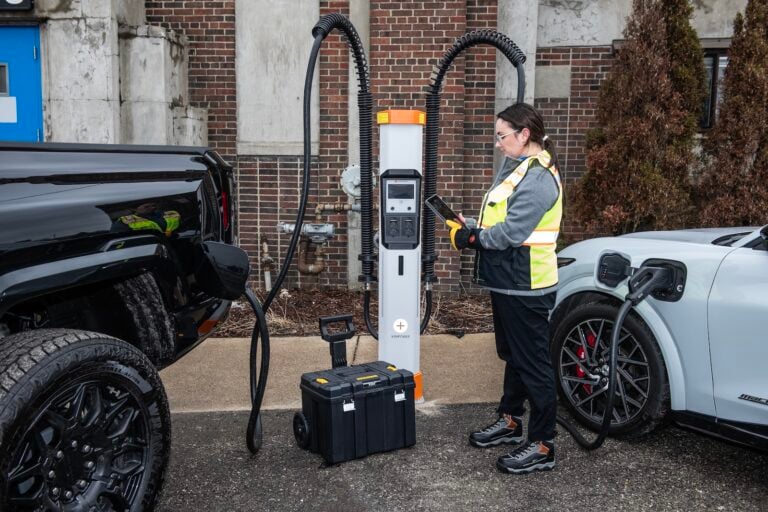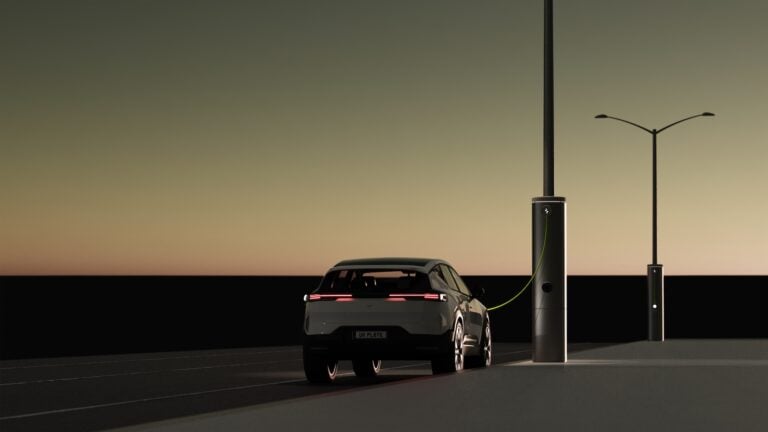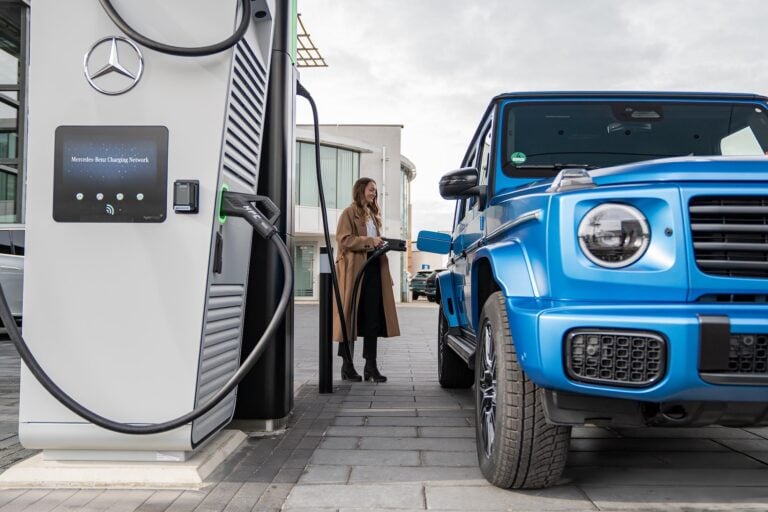Sign up for our popular daily email to catch all the latest EV news!
Japan has always been at the forefront of the automotive industry, particularly in the electrification of vehicles. With its illustrious auto sector and the advent of mass market electric vehicles (EVs), Japan now welcomes an innovative solution to enhance EV usability and convenience: the introduction of battery swapping stations. This development comes as a collaborative effort between Ample and ENEOS, aiming to address the challenges of long charging times and power limitations in urban settings by launching the first Modular Battery Swapping stations in Kyoto.
Key Highlights:
- First deployment of Ample’s battery swapping stations in Kyoto, Japan.
- Collaboration with ENEOS and partnerships with local fleets and corporations.
- Two drive-through swapping pods designed for efficient EV battery replacement.
- Commitment from MK Taxi, Kyoto’s largest taxi fleet, highlighting the operational benefits.
- Stations offer a quick, full charge in just 5 minutes, adaptable for various vehicle sizes.
- Supports Japan’s decarbonization goals, enhancing the transition to renewable energy.
In Kyoto, a city synonymous with environmental leadership due to its connection with the Kyoto Protocol, these battery swapping stations signify a major step forward. The stations are uniquely designed, featuring two drive-through swapping pods, and cater to a wide array of partners, including MK Taxi, Kyoto City, and Sumitomo Mitsui Banking Corporation, among others. This initiative not only showcases a scalable and affordable infrastructure for electrification but also aligns with Japan’s ambitious decarbonization goals.
MK Taxi’s shift towards Ample’s battery swapping technology underscores the practical challenges of traditional EV charging infrastructures, such as the extensive time needed for charging and the difficulty in deploying sufficient charging facilities. By providing a full charge in a mere 5 minutes and requiring minimal space, these modular stations present a viable solution, particularly in dense urban environments like those found in Japan.
As Japan aims to ban the sale of new gas vehicles by 2035, the introduction of battery swapping stations by Ample and ENEOS marks a significant milestone. This technology not only promises to enhance the efficiency of EVs but also supports the grid’s transition to renewable energy, emphasizing the importance of collaboration among OEMs, fleets, and municipalities in achieving a sustainable future.
In conclusion, the deployment of Japan’s first battery swapping stations represents a critical advancement in the EV ecosystem, providing a fast, efficient, and scalable solution to one of the key challenges facing the widespread adoption of electric vehicles.
Sign up for our popular daily email to catch all the latest EV news!

